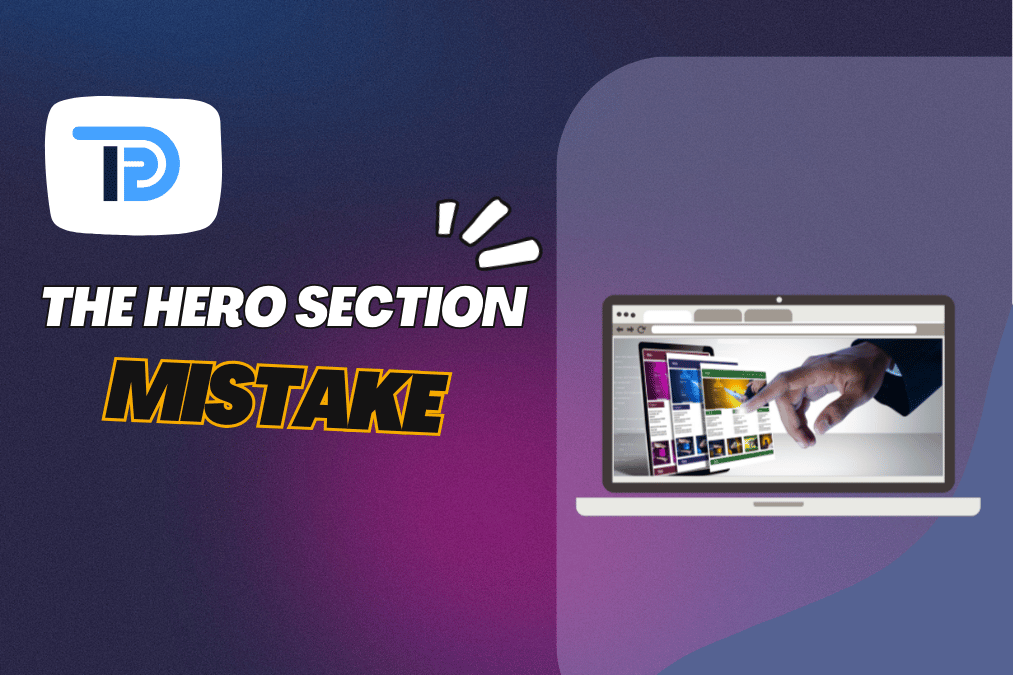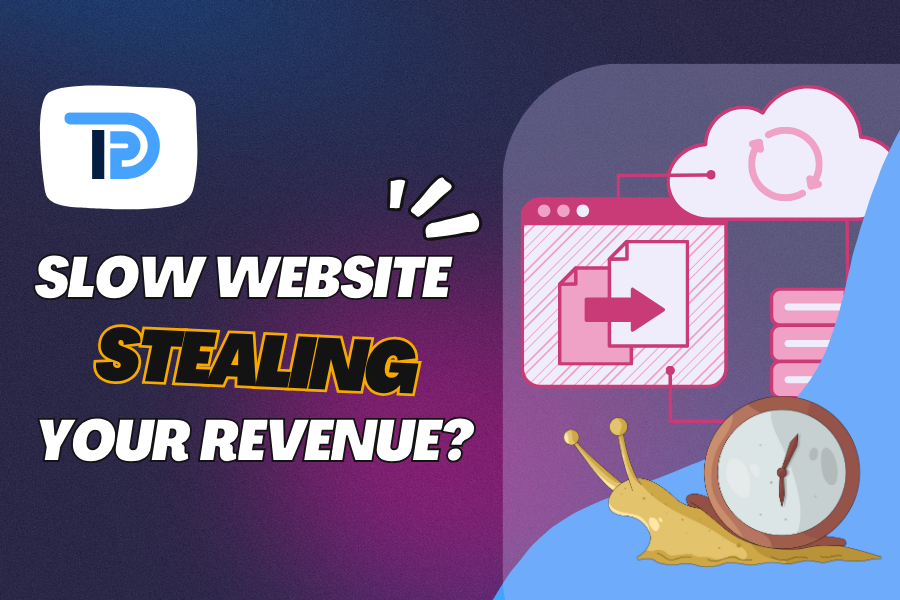Table of Contents
ToggleIntroduction
Are you looking to start your own online business or expand your existing one? With countless options available, finding the top 10 e-commerce websites that cater to your needs can feel overwhelming. In today’s digital age, having a strong online presence is crucial for success. One of the key aspects of establishing an online business is choosing the right e-commerce platform.
In this comprehensive guide, we will explore the top 10 e-commerce websites list and delve into what makes them stand out. Whether you’re searching for the best website for online sales, a simple e-commerce solution, or a platform suitable for small businesses, this article has got you covered. We’ll also discuss the best website builders to create your own e-commerce website, allowing you to take control of your online business venture.
What Makes an E-commerce Website Great?
Before we dive into the top 10 e-commerce websites list, let’s establish some criteria for what makes an e-commerce platform great. When evaluating these sites, we considered factors such as user experience, product variety, pricing options, customer support, and overall reputation. The following platforms have consistently proven their excellence in these areas, making them the top choices in the online marketplace.
Top 10 E-commerce Websites List
Website 1: Amazon
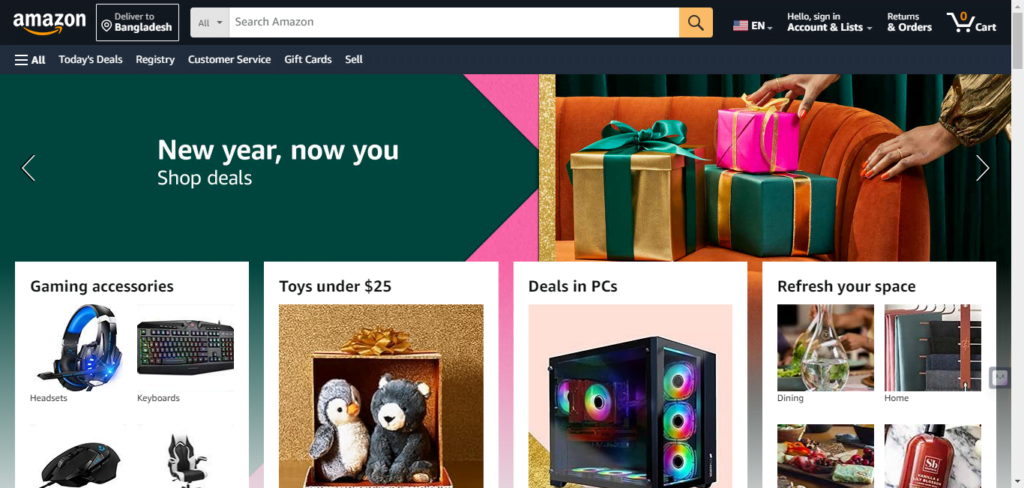
Among top 10 e-commerce websites list the largest online marketplace globally, Amazon needs no introduction. With a vast selection of products, competitive pricing, and unparalleled customer service, Amazon continues to dominate the e-commerce landscape. Whether you’re shopping for electronics, fashion, home goods, or virtually anything else, Amazon is the go-to destination for millions of online shoppers worldwide.
Key Features:
- Extensive product catalog
- Prime membership benefits
- Efficient fulfillment services
- Customer reviews and ratings
Website 2: eBay

eBay has carved its place as an online marketplace renowned for its auction-style selling and unique product offerings. With millions of active users, eBay provides a platform for individuals and businesses alike to buy and sell an extensive range of products and that’s why it is in the second place on our top 10 e-commerce websites list.
Key Features:
- Auction-style listings
- Buy It Now options
- Global customer base
- Seller protection programs
Website 3: Shopify

Shopify is not only a leading e-commerce website but also a comprehensive e-commerce platform that allows individuals and businesses to create and manage their own online stores. With user-friendly features and customization options, Shopify empowers entrepreneurs to turn their ideas into successful online businesses and it is in the third rank in our top 10 e-commerce websites list.
Key Features:
- Easy-to-use interface
- Extensive app integrations
- Secure payment processing
- Responsive customer support
Website 4: Walmart
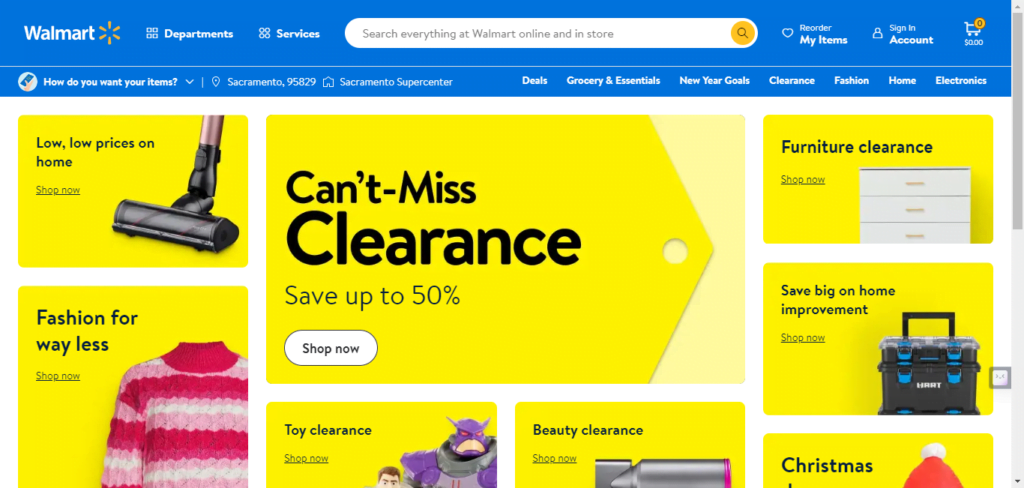
Walmart, a trusted retail giant, also boasts a strong online presence, offering an extensive range of products at competitive prices. With obtaining fourth rank among our top 10 e-commerce websites list Walmart convenient pickup and delivery options, Walmart ensures a seamless shopping experience for its customers.
Key Features:
- Wide assortment of products
- Multiple delivery options
- Competitive pricing
- In-store pickup availability
Website 5: Alibaba

Alibaba is a powerhouse in the e-commerce industry, connecting businesses across the globe. With its B2B, B2C, and C2C marketplaces, Alibaba provides a platform for international trade, allowing businesses to source products and expand their reach and that’s why we keep Alibaba at number five in our top 10 e-commerce websites list.
Key Features:
- Business-to-business marketplace
- Large supplier network
- Trade assurance services
- Global shipping options
Website 6: Etsy

Etsy stands out as a unique marketplace dedicated to handmade, vintage, and artisanal products. With a focus on creativity and individuality, Etsy provides a platform for independent sellers to showcase their crafts and connect with a community of like-minded individuals.
Key Features:
- Handmade and vintage products
- Niche and specialized items
- Seller community support
- Personalized shopping experience
Website 7: Target
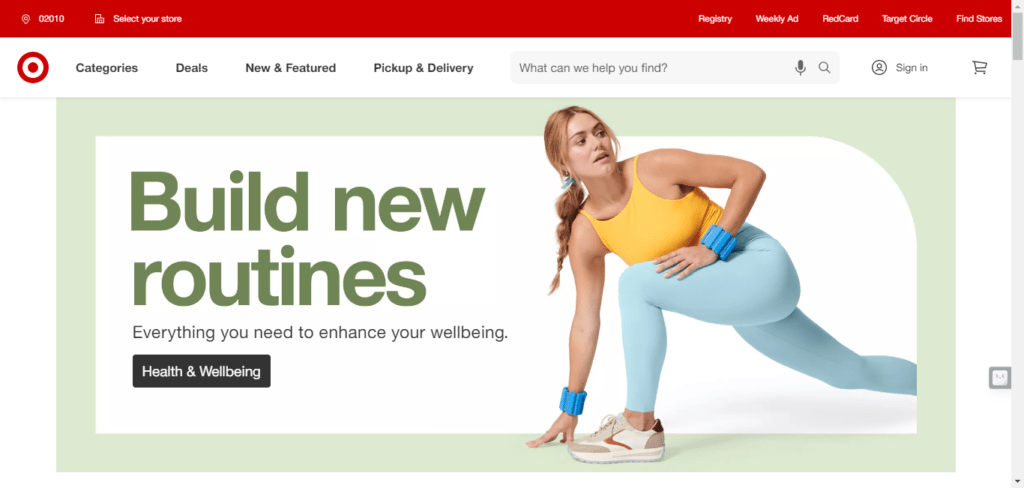
Target, a popular brick-and-mortar retailer, has successfully expanded its operations online. With an extensive range of products, competitive pricing, and quality brands, Target offers a seamless shopping experience for its customers.
Key Features:
- Diverse product selection
- Exclusive brands
- In-store pickup and curbside delivery
- Target Circle rewards program
Website 8: Best Buy

Best Buy has solidified its position as a leading e-commerce website for all things tech-related. With a vast selection of electronics, appliances, and entertainment products, Best Buy caters to the needs of tech enthusiasts and casual consumers alike.
Key Features:
- Extensive tech product catalog
- In-store pickup and delivery options
- Geek Squad technical support
- Reward Zone loyalty program
Website 9: Flipkart
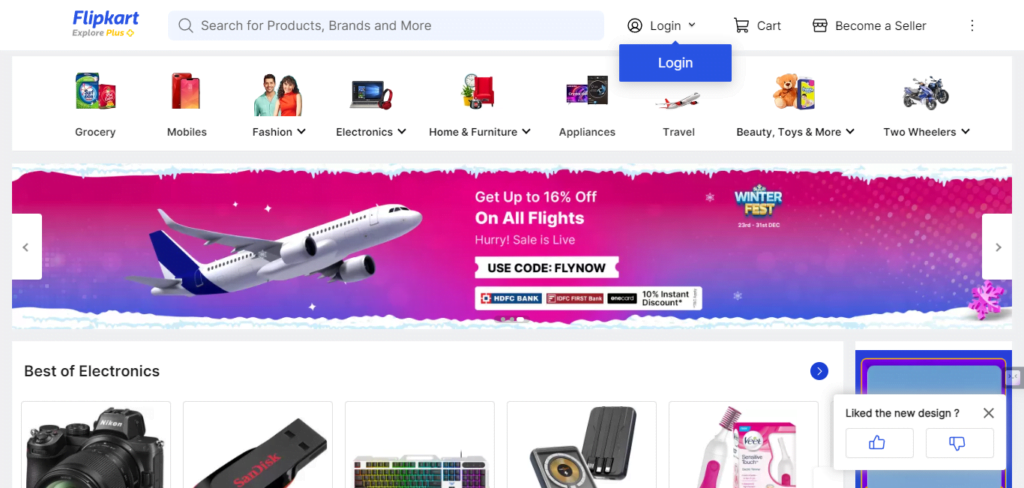
Flipkart is in the ninth rank at our top 10 e-commerce websites list. It is an Indian largest e-commerce platform, offering a wide range of products at competitive prices. With its user-friendly interface and customer-focused approach, Flipkart has transformed the online shopping experience for millions of Indians.
Key Features:
- Varied product categories
- Cash on delivery option
- Flipkart Plus loyalty program
- Big Billion Days sale event
Website 10: Zalando

Zalando is Europe’s leading online fashion platform, offering a wide range of clothing and accessories from renowned brands. With its focus on fashion and personalized experiences, Zalando has obtain the tenth position at our top 10 e-commerce websites list. Also it is a top choice for fashion-forward individuals across the continent.
Key Features:
- Extensive fashion catalog
- Personalized style suggestions
- Easy returns and refunds
- Sustainability initiatives
The Importance of Choosing the Right E-commerce Platform
When it comes to starting or expanding your online business, choosing the right e-commerce platform is crucial. Not all platforms are created equal, and finding the one that aligns with your business’s unique needs can greatly impact your success. Here are a few reasons why selecting the best e-commerce website/platform is essential:
- User Experience: A user-friendly interface and intuitive navigation improve customer satisfaction and encourage repeat purchases.
- Scalability: A robust platform allows for growth and accommodates an increasing number of products, customers, and orders.
- Integrated Features: Look for built-in features such as secure payment gateways, inventory management, and marketing tools to streamline operations.
- SEO-Friendliness: An e-commerce platform that prioritizes search engine optimization (SEO) helps drive organic traffic to your website.
- Mobile Responsiveness: With the rise of mobile shopping, it’s crucial to choose a platform that offers a seamless mobile experience for your customers.
- Customer Support: Reliable and responsive customer support ensures that any issues or concerns are addressed promptly, minimizing disruptions to your business.
How to Create Your Own E-commerce Platform
While utilizing established e-commerce websites may be ideal for some, others may prefer to create their own e-commerce website to have complete control over their online business. Whether you’re a small business owner or an aspiring entrepreneur, here are the essential steps to create your own e-commerce website:
- Choose a Domain Name: Select a domain name that reflects your brand and is memorable for your customers.
- Select a Hosting Provider: Look for a reputable hosting provider that offers reliable performance, security, and scalability.
- Pick an E-commerce Platform: Explore different platforms such as Shopify, WooCommerce, Squarespace, Wix, and BigCommerce.
- Design Your Website: Customize your website’s appearance using responsive templates and ensure a user-friendly interface.
- Add Product Listings: Create compelling product descriptions, high-quality images, and clear pricing information.
- Set Up Payment Gateways: Integrate secure payment gateways to enable customers to make purchases easily and securely.
- Implement Shipping Methods: Determine shipping options and rates, considering factors like location, weight, and delivery speed.
- Optimize for SEO: Optimize your website with relevant keywords, meta tags, and descriptive URLs to improve search engine visibility.
- Launch Your Website: Preview and test your e-commerce website thoroughly before making it live for customers.
- Promote Your Website: Utilize social media, content writing, and other digital marketing strategies to drive traffic to your website.
By following these steps, you’ll be well on your way to establishing a successful e-commerce website that aligns with your business goals.
The Best E-commerce Website Builders
Builder 1: Shopify
Shopify is a cloud-based e-commerce platform renowned for its simplicity and versatility. With its easy-to-use interface, robust features, and vast selection of customizable themes, Shopify empowers entrepreneurs to build stunning online stores that drive sales.
Key Features:
- Drag-and-drop store builder
- Secure payment processing
- Extensive app store
- 24/7 customer support
Builder 2: WooCommerce
WooCommerce is a popular e-commerce plugin for WordPress, allowing users to transform their existing WordPress websites into fully functional online stores. With its flexibility and integration with WordPress, WooCommerce offers a powerful solution for those already familiar with the WordPress ecosystem.
Key Features:
- Seamless WordPress integration
- Customizable design options
- Extensive plugin library
- Community support
Builder 3: Squarespace
Squarespace is a popular website builder known for its beautiful templates and intuitive design capabilities. While Squarespace is not solely focused on e-commerce, its e-commerce features provide a seamless way to sell products online while maintaining an aesthetically pleasing website.
Key Features:
- Modern and elegant templates
- Mobile-responsive designs
- Built-in marketing tools
- Integrated analytics
Builder 4: Wix
Wix is a user-friendly website builder that offers a dedicated e-commerce solution for businesses of all sizes. With its drag-and-drop editor, customizable templates, and comprehensive e-commerce features, Wix allows users to create visually stunning online stores.
Key Features:
- Easy-to-use website builder
- Vast template library
- App market for added functionality
- Multilingual support
Builder 5: BigCommerce
BigCommerce is a robust e-commerce platform renowned for its scalability and enterprise-level features. Whether you’re a high-volume seller or a growing business, BigCommerce offers a comprehensive suite of tools to streamline your online operations and drive sales.
Key Features:
- Enterprise-level performance
- Built-in SEO features
- Multi-channel selling options
- Advanced reporting and analytics
By choosing and customizing one of these e-commerce website builders, you’ll have the necessary tools to create your startup.
Conclusion:
In the realm of e-commerce, choosing the right platform is pivotal for success. This guide highlighted the top 10 e-commerce websites list, each excelling in unique ways. From Amazon’s global reach to Etsy’s niche for handmade goods, these platforms cater to diverse needs, reflecting the dynamism of online markets.
Selecting the right e-commerce platform is crucial, influencing user experience, scalability, integrated features, SEO-friendliness, mobile responsiveness, and customer support. Aspiring entrepreneurs can leverage established platforms or create their own websites, armed with insights from this guide.
The best e-commerce website builders, including Shopify, WooCommerce, Squarespace, Wix, and BigCommerce, offer streamlined paths to professional online stores. They empower businesses to adapt, innovate, and thrive in the dynamic digital marketplace.
Frequently Asked Questions (FAQs)
Why is choosing the right e-commerce platform important for businesses?
Choosing the right e-commerce platform is vital as it directly impacts user experience, scalability, integrated features, SEO-friendliness, mobile responsiveness, and customer support. The right platform sets the foundation for a successful online business.
How can I create my own e-commerce website?
Creating your own e-commerce website involves steps like choosing a domain name, selecting a hosting provider, picking an e-commerce platform (e.g., Shopify, WooCommerce, Squarespace), designing your website, adding product listings, setting up payment gateways, implementing shipping methods, optimizing for SEO, and promoting your website through various digital marketing strategies. Also you can use our help to develop your brand identity.
What are the key features of popular e-commerce website builders?
Different e-commerce website builders offer unique features. Shopify boasts a drag-and-drop store builder and extensive app integrations. WooCommerce seamlessly integrates with WordPress and offers customizable design options. Squarespace emphasizes modern and elegant templates, Wix provides an easy-to-use website builder with a vast template library, and BigCommerce is renowned for enterprise-level scalability and advanced reporting.
Why are mobile responsiveness and SEO-friendliness crucial for e-commerce websites?
Mobile responsiveness ensures a seamless shopping experience for customers who increasingly use mobile devices. SEO-friendliness enhances a website’s visibility on search engines, driving organic traffic and increasing the likelihood of attracting potential customers.
How do e-commerce giants like Amazon and eBay maintain their dominance?
E-commerce giants like Amazon and eBay maintain their dominance through factors such as an extensive product catalog, competitive pricing, efficient fulfillment services, and a focus on customer satisfaction. Continuous innovation, strategic partnerships, and adapting to market trends also contribute to their sustained success.



